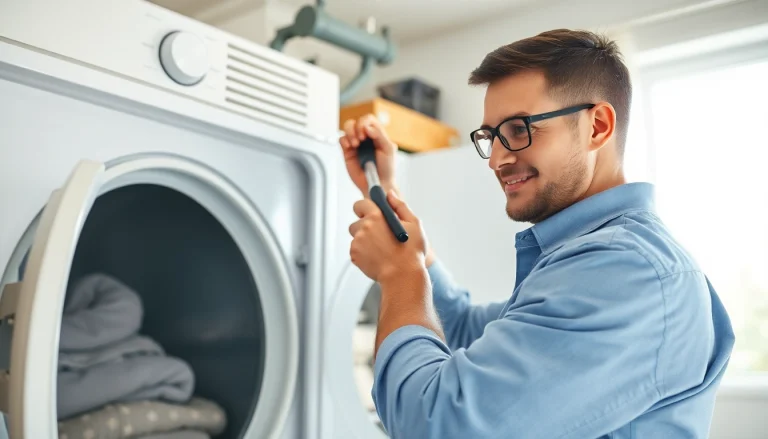
Understanding the Role of an Electrician
The profession of an Electrician is integral to modern society, encompassing a range of tasks that ensure our electrical systems function safely and efficiently. Electricians are trained tradespeople, adept at handling electrical wiring in residential, commercial, and industrial settings. The diverse nature of their work includes everything from installing new wiring and components to diagnosing and repairing existing electrical issues. Understanding their role is essential not just for potential customers but also for anyone considering entering this critical profession.
What is an Electrician?
An electrician is a skilled tradesperson specializing in the design, installation, maintenance, and repair of electrical systems. This includes wiring of buildings, transmission lines, stationary machines, and related equipment. They play an essential role in the construction of new homes, commercial buildings, and infrastructure projects. Moreover, electricians handle the upkeep of existing electrical systems to ensure safety, efficiency, and compliance with regulatory standards.
Common Electrical Services Offered
Electricians offer a wide variety of services, which may include:
- Installing new electrical wiring for buildings and renovations.
- Connecting electrical appliances and fixtures, including lighting and fans.
- Upgrading electrical panels to meet service demands.
- Performing routine examinations and maintenance of electrical systems.
- Repairing faulty wiring and addressing short circuits.
- Implementing outdoor electrical installations, such as lighting and outlets.
- Carrying out fire and security alarm installations and servicing.
Importance of Hiring Qualified Electricians
Hiring a qualified electrician is essential for multiple reasons:
- Safety: Electrical work can be hazardous. Qualified electricians understand local codes and regulations and implement safety measures to prevent accidents.
- Quality Assurance: Experienced electricians deliver high-quality workmanship that reduces the risk of future electrical failures.
- Cost-Effectiveness: Though hiring a professional may seem more expensive up front, it can save substantial costs over time by reducing the likelihood of future repairs and ensuring efficient energy use.
- Time Efficiency: Professionals can complete jobs faster due to their expertise, allowing for timely project completion and less disruption.
Essential Skills and Qualifications for Electricians
Foundational Education Requirements
Becoming an electrician typically begins with a high school diploma or GED, emphasizing foundational subjects such as algebra, physics, and basic electronics. Many vocational schools offer specialized programs that provide hands-on training and theoretical knowledge in electrical concepts.
Technical Skills Needed in the Field
Electricians must possess a variety of technical skills, including:
- Understanding electrical codes and safety regulations.
- Reading blueprints and technical drawings to comprehend wiring layouts.
- Problem-solving skills to diagnose electrical issues effectively.
- Proficiency in using electrical tools and equipment safely.
- Knowledge of electrical system components and their functions.
Certifications and Licensure
Licensing requirements for electricians vary by state or region, but most require passing a competency exam and meeting continuing education requirements. Additional certifications can enhance an electrician’s qualifications, such as certifications for specific electrical technologies (e.g., renewable energy systems) or safety protocols (e.g., OSHA safety training).
Health and Safety Considerations for Electricians
Common Hazards in Electrical Work
Electricians frequently face various hazards, including:
- Electrocution and electrical burns from live wires.
- Falls from heights, particularly when working on ladders or rooftops.
- Falling objects and debris in construction sites.
- Exposure to hazardous materials and environments, such as damp areas or chemical exposure.
Safety Equipment and Practices
To mitigate risks, electricians should use personal protective equipment (PPE) and adhere to safe work practices, such as:
- Wearing insulated gloves and footwear.
- Utilizing safety harnesses and proper fall protection gear.
- Implementing lockout/tagout procedures to prevent equipment from being powered on unexpectedly.
- Conducting regular safety audits and training sessions.
Regulations and Standards Compliance
Compliance with local, state, and national electrical codes is mandatory. The National Electrical Code (NEC) provides guidelines for safe electrical practices to protect both workers and the public. Electricians must stay updated with ongoing changes to these regulations to ensure compliance during their work.
Challenges Faced by Electricians Today
Addressing Electrical System Changes
The rapid evolution of electrical technology poses challenges for electricians. Modern systems often integrate smart technology, requiring electricians to adapt and develop new skills to install and maintain these advanced systems.
Keeping Up with Technological Advancements
The increasing prevalence of renewable energy sources, smart home technology, and energy-efficient solutions requires continuous learning and adaptation. Electricians must pursue ongoing training and certification in these areas to remain competitive in the field.
Managing Customer Expectations and Satisfaction
With rising customer awareness and expectations for quality service, electricians face pressure to provide exceptional service at competitive prices. Good communication skills and customer service excellence are essential to meet client demands and ensure satisfaction.
Future Trends in the Electrician Industry
The Impact of Renewable Energy on Electricians
As society transitions toward renewable energy solutions, electricians will play a central role in installing and maintaining systems such as solar panels and wind turbines. This shift presents significant opportunities for electricians to expand their skill sets and business offerings.
Smart Home Technology Advancements
The rise of smart home technology is transforming residential electrical installations. Home automation systems allow homeowners to control lighting, heating, and appliances remotely, necessitating electricians to adapt their expertise to these technologies.
Job Outlook and Opportunities for Electricians
The demand for skilled electricians continues to grow due to increasing construction activity, infrastructure upgrades, and the expanding renewable energy market. This positive job outlook suggests robust opportunities for individuals entering the electrician profession while emphasizing the need for continued education and adaptability to industry changes.






